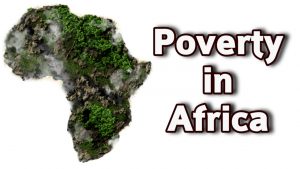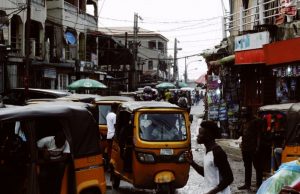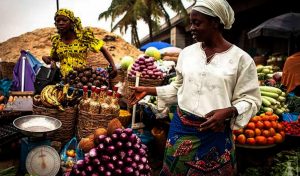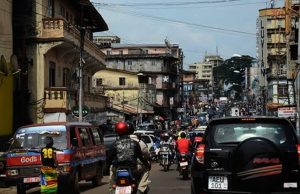Ways To Reduce Poverty In Nigeria: A state or condition in which an individual or society lacks the financial means and necessities for a basic standard of living is referred to as poverty. Poverty goes beyond a lack of financial resources. In defining Poverty, the World Bank Organization put it thus “Poverty is hunger, it is a lack of shelter. Poverty is also a lack of access to education, It’s being unwell and unable to see a doctor, it is not having a job, it is living each day with apprehension for the future.”
Poverty, it is said, has various faces, changing from place to place and over time. There is no single cause of poverty, and the consequences vary from case to case. Poverty, too, varies greatly depending on the situation. Being impoverished in Canada is not the same as being poor in Liberia. Within a country’s borders, disparities between the affluent and poor might be significant.
Regardless of how poverty is defined, one thing is certain: poverty is a complex societal problem that needs to be addressed by everyone. Nigeria, for one, is a country where poverty levels are continuing to climb. Nigeria, Africa’s most populous country, with an estimated population of roughly 216.7 million as of 2022, has a larger proportion of its population living in abject poverty. Surprisingly, this hasn’t slowed the growth of the country’s population. It is in fact no longer a contentious issue that poverty persists in Nigeria.

Recommended: Causes, Effects and Solutions to Bad Governance in Nigeria
According to projections by the World Bank Organization, over 90 million Nigerians will be poor by 2022. However, due to the pandemic, the projected population of Nigeria has risen to 95.1 million people. Nigeria’s poverty reduction is said to be hampered by sluggish development, low human capital, labour market flaws, and shock vulnerability, according to a recent World Bank report titled “A Better Future for All Nigerians: Nigeria Poverty Assessment 2022.”
Details from the report, which is the most recent evidence on the profile and drivers of poverty in Nigeria, show that 4 in 10 Nigerians live below the national poverty line. Many Nigerians, particularly in the north, lack access to education and basic amenities like power, safe drinking water, and improved sanitation. Similarly, jobs do not translate Nigerians’ hard work into a way out of poverty because the majority of employees are employed in small-scale domestic farms and non-farm companies; only 17% of Nigerian workers work in wage employment that can raise people out of poverty.
Because Nigeria has the highest proportion of impoverished people in Sub-Saharan Africa, bringing Nigerians out of poverty is critical to “changing the status quo” and eliminating global poverty. Many people advocate the adoption of a multidimensional approach to address this problem that has plagued Nigeria for years.
Recommended: Top 10 Most Corrupt Countries in Africa

8 Ways To Reduce Poverty In Nigeria
The following are some strategies for reducing poverty in Nigeria:
1. Increase in Literacy Rate and Skill Development: Nigeria has one out of every five out-of-school children in the world, according to UNICEF, with the situation in Northern Nigeria appearing to be even worse. According to data from October 2018, Nigeria has the highest number of out-of-school children. This lack of human capital development invariably results in poverty.

High-quality education can provide a long-term solution to poverty in Nigeria. It has been ascertained that high-quality education boosts economic efficiency by increasing the value and efficiency of the labour force, thereby helping the people escape poverty.
Recommended: Causes, Effects and Solutions to Examination Malpractice in Nigeria
2. Economic Diversification: Economic fragility due to an overreliance on oil revenue is another important reason for the rising poverty levels in Nigeria. As such, diversifying economic activities is critical to give possibilities for Nigerians while maintaining economic stability.

Poverty reduction can be aided by diversifying the Nigerian economy and enhancing value addition in the agriculture sector. The agriculture sector currently employs 70% of the country’s workforce, but by growing it, the government will be able to give even more specialized jobs, allowing individuals to advance up the employment ladder.
3. Expand Economic Opportunities and Embrace Technology: To eradicate poverty in Nigeria, the country’s economic production and prospects for its population must be improved. This will entail boosting financial access and possibilities for women and young people in rural communities, as well as advancing technology innovation.

To achieve this, the Nigerian government needs to invest in job-creation strategies like rebuilding infrastructures and other widespread investments that create jobs, revitalize communities, and boost its national economy. Similarly, the government can help boost job growth by unlocking private-sector collaborations through incentives and social impact bonds, as well as strengthening entrepreneurial ecosystems, as has been proven in other nations.
Furthermore, access to microfinance has also been shown to lessen poverty around the world, despite its limits. While there are good justifications for using grants and other forms of social assistance to support those who are poor, it is critical to integrate people into the financial system so that governments may better plan and integrate services for the poorest of the poor.
Although financial inclusion is increasing in Nigeria, penetration in the country’s impoverished rural areas remains low. Financial inclusion can be boosted via the government’s regulatory support for digital and mobile-based financial products, as well as the implementation of blockchain technologies.
Recommended: Causes, Effects and Solutions to Brain Drain in Nigeria
4. Invest In Healthcare: As Nigeria continues to struggle with several crippling health indicators, people are being forced into abject poverty every year as a result of needing to spend money on health conditions. To alleviate poverty, we must take advantage of demographic dividends by investing in health and well-being, particularly for our youth.

As such, Nigeria’s basic healthcare system should be strengthened by the federal government. It’s worth noting that increased healthcare investment is linked to economic growth as well as poverty reduction.
5. Invest In Girls’ Education and Women’s Empowerment: Out of the over 10 million children out of school in Nigeria, around half of them are girls. Educating girls and women empowerment has been shown to have both economic and intergenerational benefits. Gender equality boosts household earnings and improves children’s opportunities and well-being, which is a sensible strategy to eliminate poverty for future generations as well as our own.

Recommended: Most technologically advanced countries in Africa
6. Fight Against Corruption: With corruption deeply rooted in Nigeria’s system and the absence of penalties for corrupt public officials, the resultant effect has been the diversion of funds intended for development projects, leading to inadequate infrastructure development and social welfare, as well as poverty.
Fighting corruption is a step in the right direction to rid the nation of its rising poverty levels, and to curb corruption, a comprehensive anti-corruption campaign and strong fiscal oversight are required. Unlike education, which reduces poverty over time, fighting corruption has an immediate impact on poverty reduction.
7. Income Redistribution: This essentially means that high-income earners (especially the political elite) will see their pay and allowances reduced, while low- and middle-income workers will see their pay and allowances boosted. This will increase overall productivity by increasing demand, which will lead to more jobs and a decrease in poverty.
Recommended: Countries with the best education system in the world
8. Invest In Infrastructure: Infrastructure investment is one strategy to help the country establish a more integrated economy, which can help to alleviate poverty. Providing reliable power, a rail network, good roads, pipe-borne water, and intervention in mass housing projects, would stimulate economic activity and empower more Nigerians.
Recommended: Best Books On Financial Intelligence 2022
Conclusion
Because poverty is primarily a societal issue rather than a personal one, society must address it critically, comprehensively, and concurrently on all fronts. Various economic, political, social, agricultural, and ideological policy choices have been proposed in acknowledgement of this. All of these initiatives, if embraced and implemented properly, are expected to significantly reduce the incidence of poverty in Nigeria.

Edeh Samuel Chukwuemeka, ACMC, is a lawyer and a certified mediator/conciliator in Nigeria. He is also a developer with knowledge in various programming languages. Samuel is determined to leverage his skills in technology, SEO, and legal practice to revolutionize the legal profession worldwide by creating web and mobile applications that simplify legal research. Sam is also passionate about educating and providing valuable information to people.